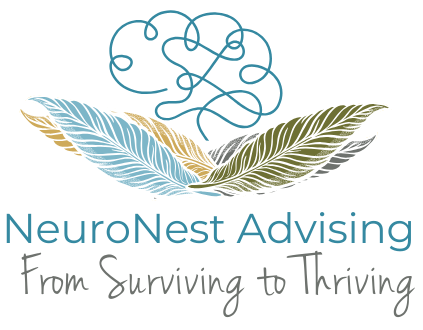It’s the beginning of August, the (almost) end of summer for most of us. If you are like me, you may be mentally and emotionally gearing up for the new teacher meet & greets, and all the things that come along with the start of a new school year advocating for your neurodivergent child.
As a parent of a soon-to-be 10 year old neurodivergent child, I wanted to share a couple statistics with you that I find to be concerning, for the purpose of starting a conversation and providing a gentle reminder about how we can communicate with our children in a way that fosters respect and connection.
It’s especially important now, as the uncertainty of the new school year raises anxiety levels in our children, to ensure we provide a stable, calming home environment where our children’s nervous systems can be on low alert. Research suggests that by the age of 10, children with ADHD will have received 20,000 more negative messages about their behavior – from parents, teachers and peers – than they do positive messages. As we all know, negative feedback can be profound. Over 50% of children with ADHD are rejected by peers and may lack “reciprocal” friends, a term simply meaning that there is a balanced ratio of giving and receiving in the friendship. When I heard that term it made me sad, as I immediately thought of my son, who will often refer to his friend “Alex” (name changed for anonymity) as his best friend for the past 2 years. From my observations, his interactions with Alex appear to be quite disproportional and lacking in reciprocity.
Adding to that, our children are often more attuned to picking up on changes in our tone of voice, our levels of internal stress and anxiety and our own emotional states, as a result of their refined nervous systems.
But there is good news; these challenges provide opportunities. There are some simple, purposeful changes we can institute today in our homes and in the relationships with our children, to ensure they continue to see us as their lifelines and our homes as their sanctuaries.
Let’s work together to be conscientious about how we are communicating to our children, and remind ourselves, or better yet, ask your child to hold you accountable to your commitment to keep an even-keeled tone of voice. Demonstrating to your child that you are not perfect, and that you are aware of your shortcomings, will set the example for your child to ultimately do the same. Showing your vulnerability to your child while getting their buy-in on something you are working on will always be a good strategy for success.
My goal is to help you find ways to strengthen your connection with your neurodivergent child. I employ a combination of deep listening, empathy, resourcefulness and accountability. Let’s chat!


